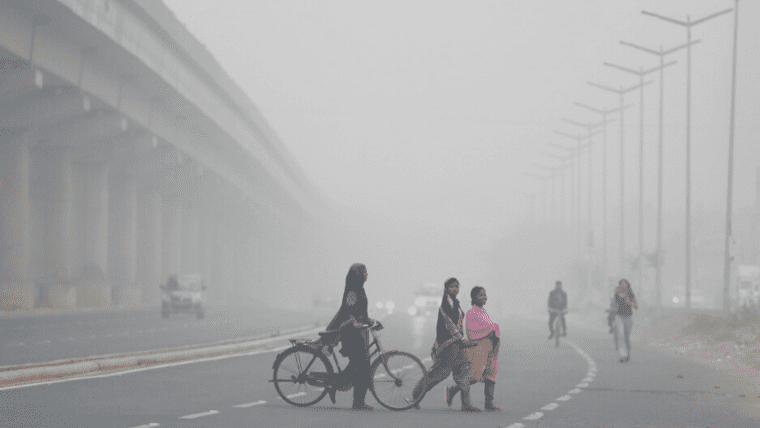Air Pollution Reduces Life Expectancy by Over 5 Years in South Asia, Alarming Report Reveals

New Delhi — In a new report released on Tuesday, the University of Chicago’s Energy Policy Institute (EPIC) highlighted the dire consequences of rising air pollution on life expectancy in South Asia, one of the world’s most polluted regions. The report, titled the Air Quality Life Index, showcased that the deteriorating air quality in the region, home to countries like Bangladesh, India, Nepal, and Pakistan, could lead to a loss of more than five years of life per person.
The EPIC report drew attention to the staggering impact of pollution on health, revealing that over half of the global life years lost due to pollution occur in this region. Rapid industrialization and population growth have significantly contributed to the decline in air quality. Particulate pollution levels in South Asia have surged by over 50% since the turn of the century, surpassing other major health concerns.
Bangladesh, the most polluted country in the world, faces a harrowing loss of 6.8 years of life per person on average. To put this in perspective, the study compared it to the relatively lower 3.6-month loss in the United States. The study relied on satellite data to calculate the impact of increased airborne fine particles on life expectancy.
India shoulders a staggering 59% of the world’s increased pollution since 2013, according to the report. The detrimental effects of hazardous air quality are evident in some of the country’s highly polluted regions. For instance, in New Delhi, a densely populated mega-city, the average life span has been slashed by more than a decade.
The report urged governments to take action by reducing levels of PM 2.5, harmful airborne particles, to the levels recommended by the World Health Organization (WHO). If achieved globally, this could potentially increase average life expectancy by 2.3 years, equivalent to a combined total of 17.8 billion life years.
The study also shed light on the potential gains if pollution was brought under control. Residents of Pakistan could gain an additional 3.9 years of life by adhering to WHO guidelines, while in Nepal, life expectancy could increase by 4.6 years. In contrast, China showcased a remarkable 42.3% reduction in pollution levels between 2013 and 2021, underscoring the importance of accessible air quality data and global cooperation to combat pollution effectively.



















Facebook Comments